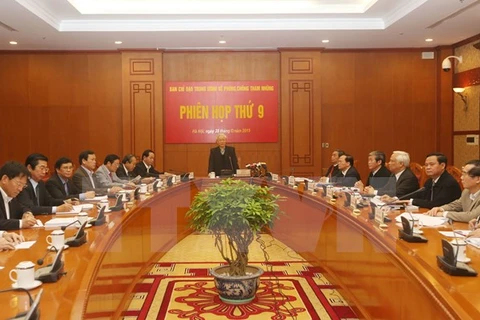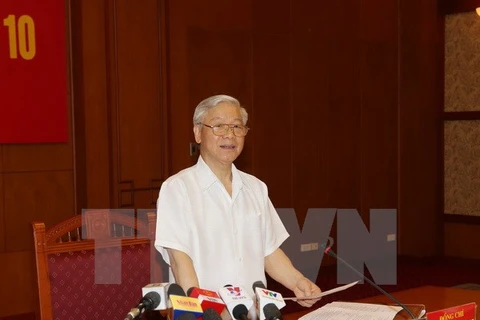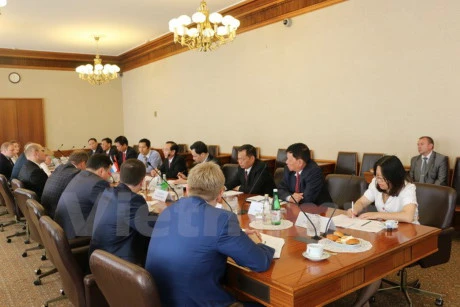Hanoi (VNA) - A strengthened co-operative mechanism between the Vietnam Fatherland Front and other State anti-corruption agencies is needed to better oversee and detect corruption, participants said at a conference in Hanoi on June 29 to review results of Anti-Corruption Law 2005 over the last 10 years.
The conference was co-organised by the Institute of Public Policy and Law, and Towards Transparency, the national branch of Transparency International, a global civil society movement working to stop corruption.
By the end of this year, the National Assembly is expected to discuss revisions to Anti-Corruption Law 2005, and the revised law is expected to be approved late next year.
Towards Transparency Executive Director Dao Nga said the Anti-Corruption Law and relevant legal documents should include regulations that encourage civil societies and people to combine efforts against corruption.
As the Vietnam Fatherland Front (VFF) was proactive in connecting other agencies, corruption cases were expected to be detected and monitored more effectively, she said.
Under the Law of Vietnam Fatherland Front 2015, the VFF is a political alliance and voluntary union of political, socio-political and social organisations as well as overseas Vietnamese and prominent individuals representing their class, social stratum, ethnicity or religion.
Its key responsibilities include rallying and building the national unity bloc; exercising democracy and promoting social consensus; and issuing public information and mobilising the people to implement laws and polices of the State.
Many corruption cases in Vietnam were discovered and punished swiftly thanks to the contribution of civil societies, media and citizens, she said, adding that the country needs a whistle-blowing mechanism.
Ta Thi Minh Ly, former head of the Legal Assistance Department under the Justice Ministry, said Vietnam issues fines too frequently instead of harsher punishments, which in turns makes it difficult to monitor and punish corruption cases.
The Law on Handling of Administrative Violations allows violators to pay fines if their violations are deemed too minor to be considered crimes, Ly said.
She said violators have taken advantage of this loophole in the law.
Nguyen Quoc Van, deputy head of the Legal Affairs Department under the Government Inspectorate, said shortcomings in the Anti-Corruption Law were revealed throughout the 10 years it was in effect.
For example, under the law, all Government officials, from deputy manager of a department to higher-ups, have to make an annual declaration of their assets and income. But in reality, most of the declarations are just a formality.
“We hardly control assets and incomes of high-ranking officials,” Van said. “Current regulations fail to address situations in which their assets are increased without being clearly accountable for their origin.”
Van said that petty corruption was quite common in Vietnam, particularly among State employees at grassroots levels.
They did not have much power, but their poor performances and poor attitudes towards public service users were signs of corruption, Van said. He added that clearer and stricter punishment to such violators should be regulated in the revised anti-corruption law.
Van said that ministries, agencies and sectors have completed their own 10-year review of the Anti-Corruption Law and a national summary meeting would be organised by the Government next month.-VNA
























